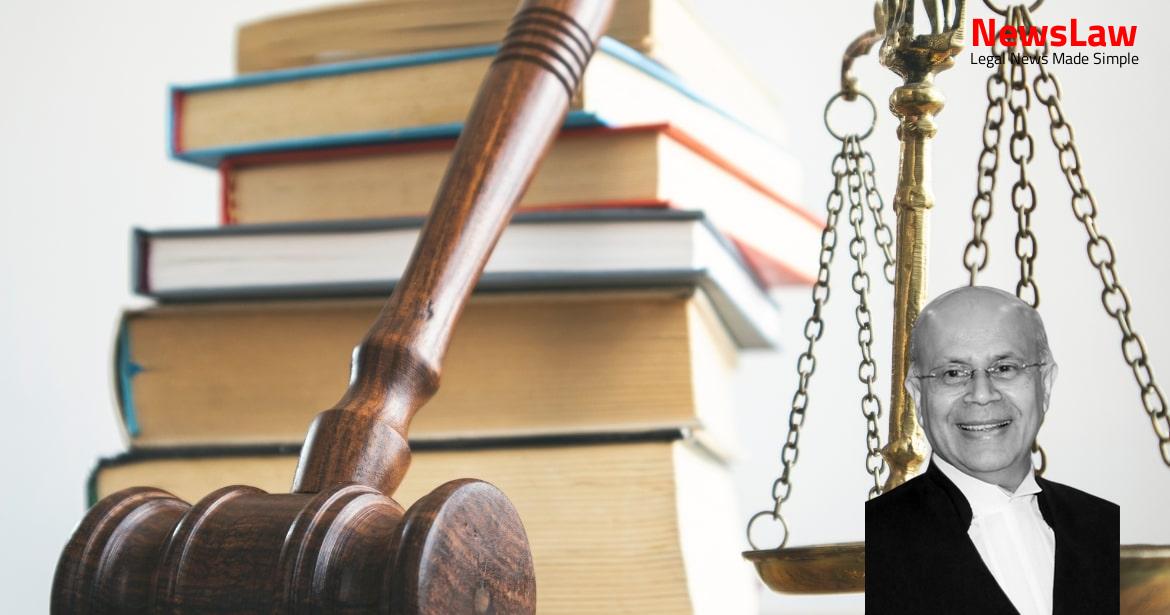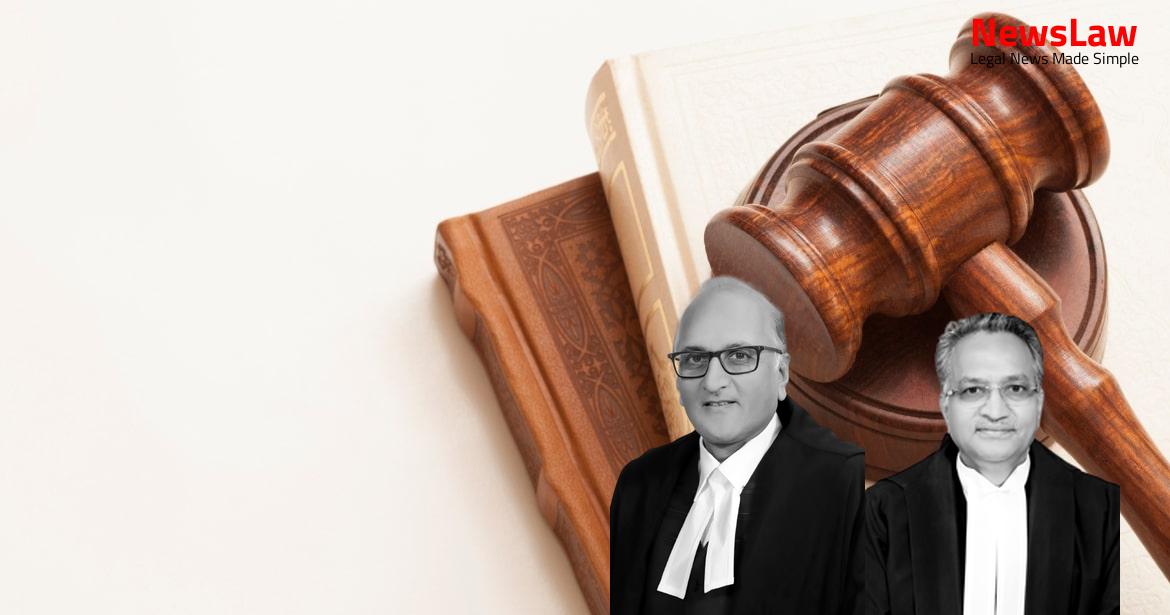In a recent judgment, the court emphasized the significance of procedural fairness in criminal cases. The case delves into the nuances of legal analysis and the court’s role in ensuring justice through due process. Stay tuned to discover the key insights from the court’s thorough examination of the law.
Facts
- No notice was issued to the appellant before the complaint was dismissed by the Magistrate.
- The police investigation report stated that the allegations were false.
- The respondent filed a protest petition which was registered as a complaint case.
- The revision application allowed the matter to be remanded to the Magistrate.
- Sections 399 and 401(2) of the Cr.P.C were cited, stating that no order prejudicial to the appellant should have been passed without hearing him after the dismissal of the complaint.
- The complainant filed a protest petition seeking an order of cognizance and issuance of process, leading to a criminal revision before the Additional Sessions Judge where the appellant was also a party respondent.
- Dismissal of the application under Section 156(3) Cr.P.C. at the pre-cognizance stage does not entitle the accused to be heard at the remand stage for further inquiry.
- Additional Sessions Judge erred in using revisional jurisdiction under Section 398 Cr.P.C. to order further investigation by the Magistrate.
- High Court’s error in stating that no hearing opportunity was needed under Section 398 Cr.P.C. for directing further inquiry after complaint dismissal rather than discharge.
- The complaint case was effectively reinstated to the detriment of the appellant.
Also Read: Analysis of Intent in Fatal Assault Case
Arguments
- Respondent no.1 filed a complaint under Section 156(3) Cr.P.C. alleging offences under Sections 420, 467, 468, 120-B, 114, and 34 of the Indian Penal Code.
- The Magistrate called for a report from the police.
Also Read: Ensuring Fair and Thorough Police Investigations: A Legal Perspective
Analysis
- The Revisional Court overturned the order of the Magistrate dismissing the complaint and restored it to the Magistrate’s file.
- The Magistrate, under Section 156(3) Cr.P.C., directed the police to register a criminal case and investigate.
- The police submitted a report under Section 173(2) stating that the accusations were false, as required by Section 401(2) of the Code.
- No dismissal of the complaint under Section 203 Cr.P.C. occurred, denying the appellant the right to be heard in the revisional jurisdiction.
- The Magistrate did not proceed under Section 173(8) and issued a notice to the complainant regarding the police’s final report acceptance.
- Calling for a police report does not imply taking cognizance by the Magistrate.
- The complaint alleged cheating and forging of signatures, resulting in the auction of the complainant’s property in a recovery suit filed by the Bank.
- After hearing the respondent and being dissatisfied, the Magistrate dismissed the complaint under Section 203 Cr.P.C. on 13.07.2006.
- The power of the Magistrate to take cognizance of an offence on a complaint or protest petition on the same or similar allegations even after accepting the final report is acknowledged.
- When a complaint is filed, sent to police for investigation, and a protest petition is filed later, the Magistrate can deal with the protest petition if it meets the requirements of a complaint under Section 190(1)(a) CrPC.
- The restoration of the complaint by the Additional Sessions Judge was to the prejudice of the appellant.
- In a revision petition by the complainant challenging the Magistrate’s order dismissing the complaint, the accused have the right to be heard in the revision petition.
- The accused or persons suspected of committing the crime are entitled to a hearing by the Revisional Court in such revision petitions.
- Persons alleged in the complaint have no right to participate in the proceedings until consideration by the Magistrate for issuance of process
- They are not entitled to any hearing before the Magistrate at this stage
Also Read: Presumption of Genuineness in Legal Documents Case
Decision
- The impugned orders dated 6.03.2009 and 08.10.2007 are deemed unsustainable and set aside.
- The matter is remanded to the Additional Sessions Judge, Greater Mumbai for fresh consideration.
- The Additional Sessions Judge is directed to hear the revision application afresh after giving notice to the appellant and then pass a new reasoned order.
- The appeal is allowed, and the judgments of the High Courts to the contrary are overruled.
Case Title: SUBHASH SAHEBRAO DESHMUKH Vs. SATISH ATMARAM TALEKAR (2020 INSC 433)
Case Number: Crl.A. No.-002183-002183 / 2011



